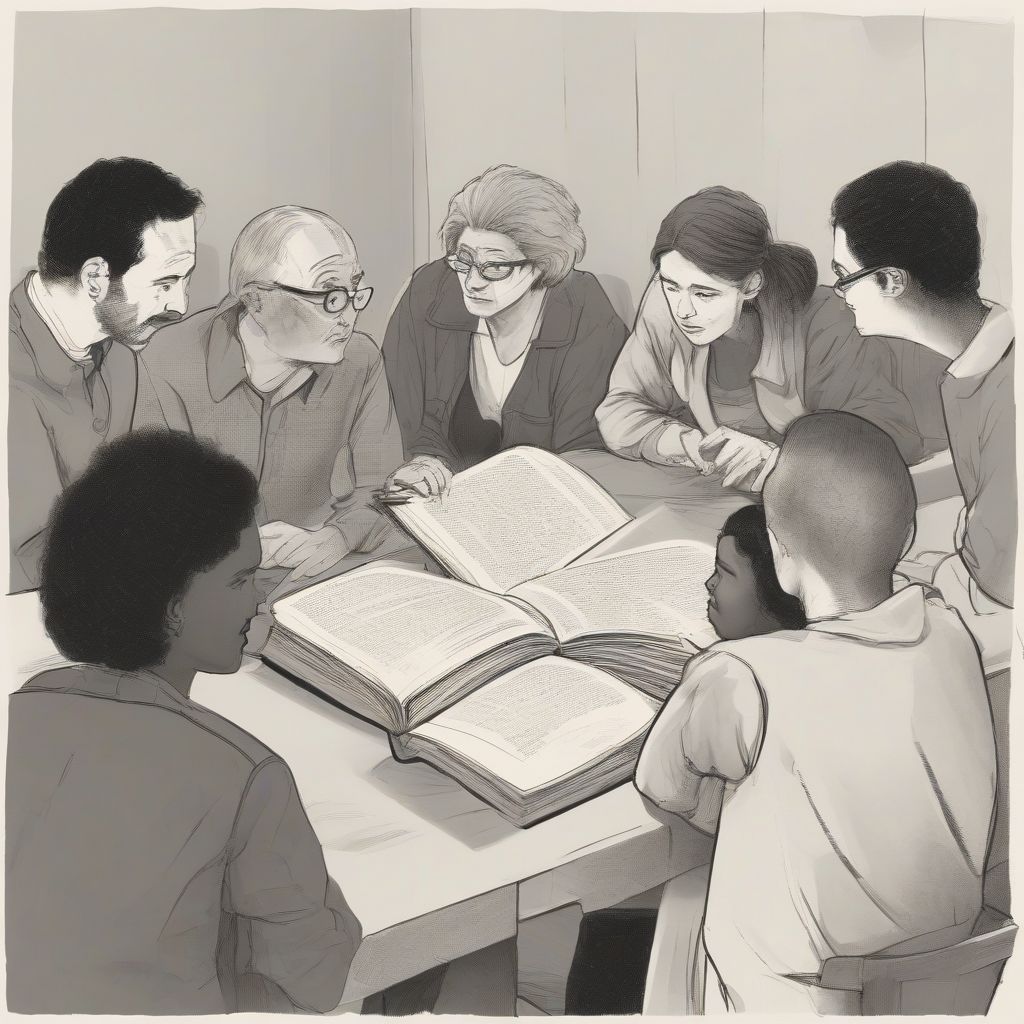Have you ever finished a classic book and felt like you only understood half of what you read? Maybe you even felt a little lost in a sea of complex themes, symbolism, and historical context. Don’t worry, you’re not alone! Unpacking a classic book is like peeling back layers of a rich history – it takes time, careful consideration, and the right tools. This article will explore the best ways to discuss and analyze classic books so you can move beyond simply reading them to truly understanding their power and relevance.
Diving Deep: Effective Strategies to Analyze Classic Literature
While enjoying the beauty of the language is important, analyzing classic literature goes beyond just appreciating the words on the page. It’s about digging into the author’s intent, the historical context, and the deeper meanings hidden within the text. Here’s how:
1. Context is Key: Unraveling the Historical Tapestry
Imagine reading “Pride and Prejudice” without understanding the societal constraints of 19th century England. The nuances of social hierarchy, marriage expectations, and even the significance of a well-placed dance move would be lost. To truly grasp a classic book, start by researching its historical context.
- Consider the author’s life: What major events shaped their worldview? What were the social and political norms of their time?
- Delve into the historical setting: What were the major events, ideologies, and cultural shifts of the time period depicted in the book? How do these elements influence the characters and plot?
- Explore the book’s initial reception: How was the book received when it was first published? What were critics saying? Understanding the initial reactions can offer valuable insights.
2. Themes: Identifying the Big Ideas
Every classic book grapples with universal themes that resonate across time. Identifying these themes provides a framework for understanding the author’s message and the book’s lasting impact.
- Look for recurring ideas: Does the book constantly return to ideas like love, death, social justice, or the search for identity?
- Analyze the characters’ struggles: What challenges do they face? What moral dilemmas arise? The characters’ journeys often illuminate the book’s central themes.
- Consider the title: Often, the title offers a significant clue about the book’s overarching themes.
3. Character Analysis: More Than Meets the Eye
Characters are the heart and soul of any story. Analyzing their motivations, relationships, and transformations is crucial to unlocking the book’s deeper meaning.
- Go beyond the surface: What are their motivations? What are their flaws and strengths?
- Analyze relationships: How do characters interact with each other? How do these relationships evolve throughout the story?
- Consider character development: Do any characters undergo significant transformations? What prompts these changes?
4. Symbolism and Motifs: Deciphering the Hidden Language
Classic authors often employ symbolism and recurring motifs to convey deeper meaning and subtext within their narratives.
- Pay attention to recurring objects, images, or ideas: Do certain objects hold symbolic weight? Do specific images repeat throughout the text?
- Consider the significance of colors, seasons, and natural elements: These often carry symbolic weight. For example, spring might represent new beginnings, while winter could symbolize death or dormancy.
- Look for patterns and connections: How do these symbols and motifs contribute to the overall themes and messages of the book?
 Classic Books Discussion
Classic Books Discussion
5. Engaging in Meaningful Discussions
Joining a book club or discussion group can significantly enhance your understanding and appreciation of classic literature.
- Prepare questions beforehand: Jot down questions about passages, characters, or themes that intrigued or puzzled you.
- Listen actively to others’ interpretations: You might be surprised by the different perspectives and insights others bring to the table.
- Don’t be afraid to share your own thoughts: Even if your interpretation differs from the group’s, your unique perspective is valuable.
Essential Tips for Fruitful Book Discussions
- Create a welcoming atmosphere: Encourage open-mindedness and respect for diverse interpretations.
- Focus on specific passages: Ground your discussion in the text by referencing specific passages to support your points.
- Ask open-ended questions: Instead of asking “yes” or “no” questions, encourage deeper thought with questions like “What do you think the author is trying to say here?” or “How did this passage make you feel?”
Conclusion: Embracing the Journey of Literary Exploration
Analyzing classic literature is an enriching journey that requires patience, critical thinking, and a willingness to delve deeper. Remember, there’s no single “right” way to interpret a classic. Embrace the ambiguity, ask questions, and engage in thoughtful discussions. The more you engage with these timeless works, the more you’ll discover about the human condition, the power of language, and your own unique perspective.
Now, it’s your turn! What are some of your favorite classic books to discuss and analyze? Share your thoughts and experiences in the comments below!
[amazon bestseller=”classic literature”]
